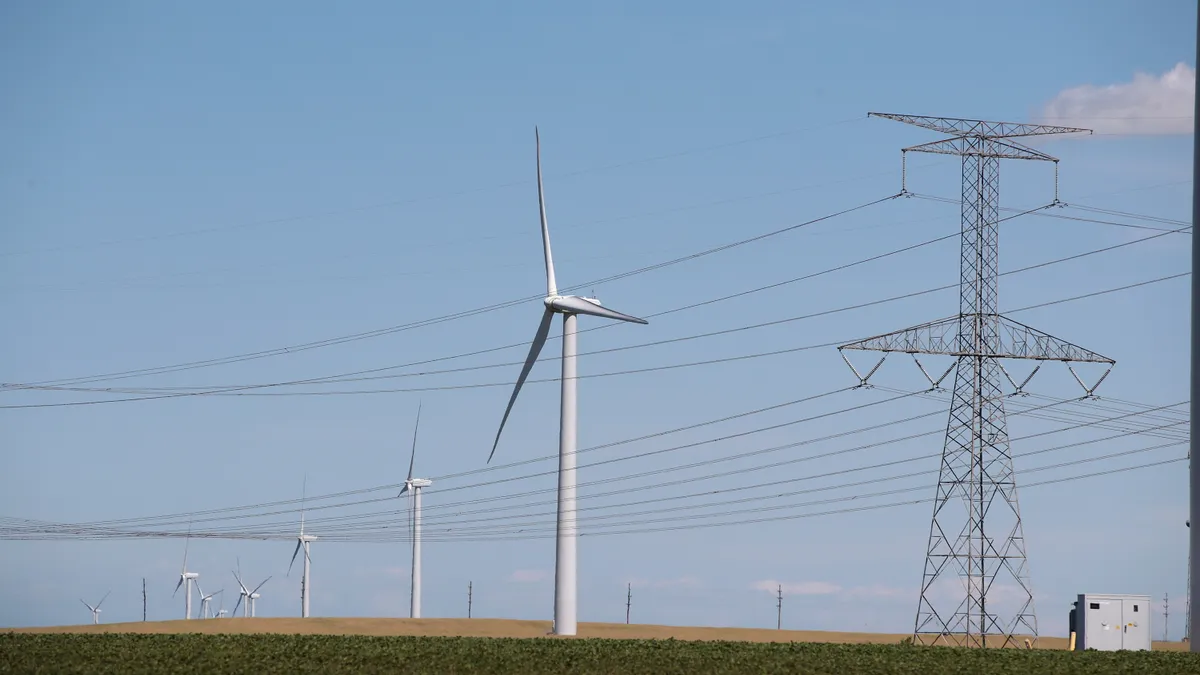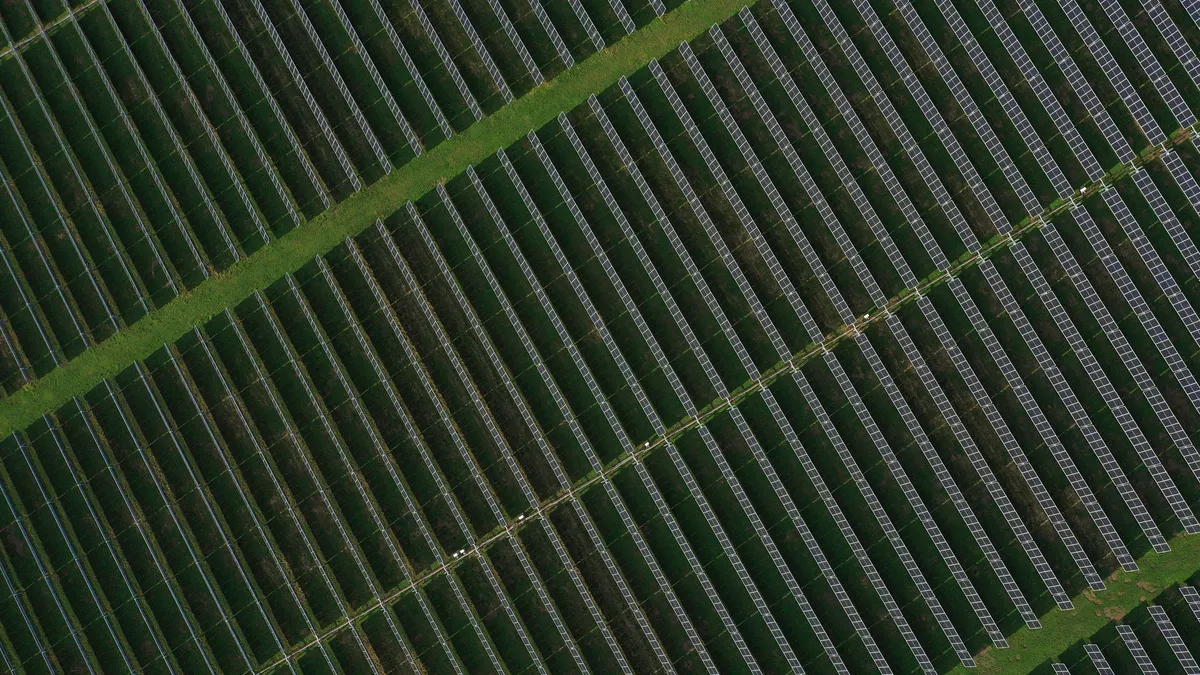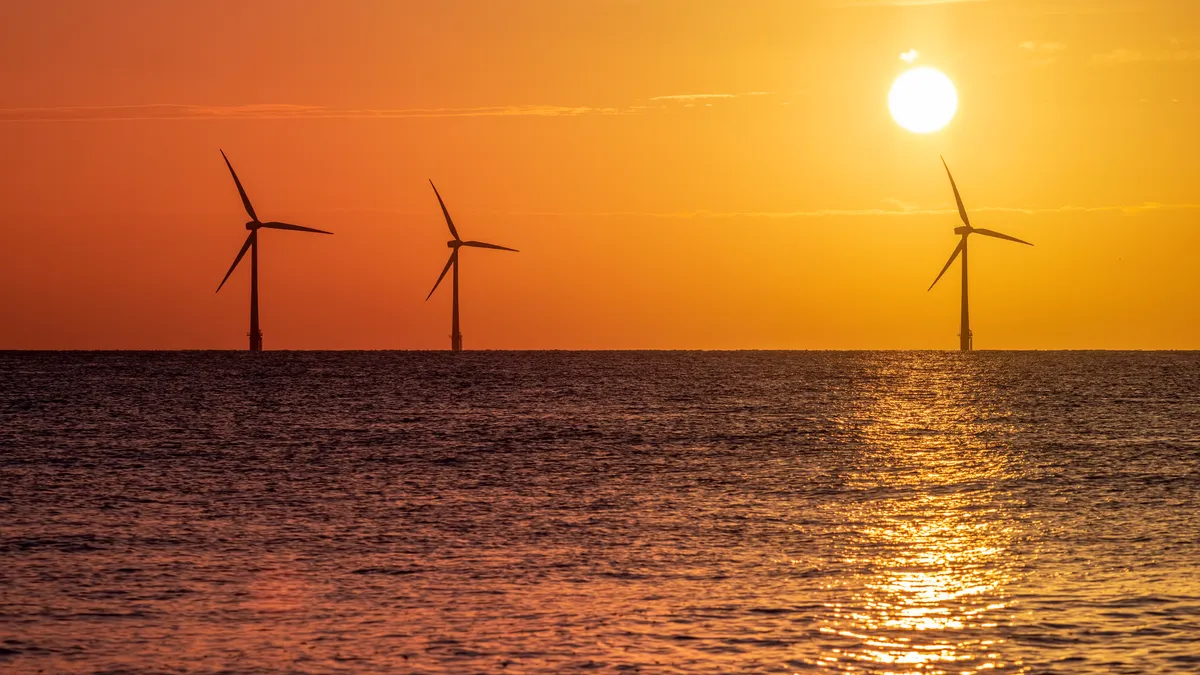The following is a contributed article by Carrie Zalewski, chairman of the Illinois Commerce Commission, as well as Jordan Graham, policy advisor to the chairman, and Tanya Rabczak, legal and policy advisor to the chairman.
On Sept. 15, Illinois Gov. JB Pritzker, D, signed into law a historic bill to decarbonize the state's energy sector, transition it to clean and renewable forms of generation, and do so with a focus on equitable job creation. Under the Climate and Equitable Jobs Act (CEJA), Illinois became the first Midwest state to commit to net-zero carbon emissions, setting a deadline of 2050.
While CEJA's decarbonization targets and workforce development components appropriately grabbed headlines, less has been written about the numerous utility regulatory requirements and challenges associated with enacting the law. Over the next two-plus years, the Illinois Commerce Commission (ICC) will work under tight statutory deadlines to resolve complex questions about how the distribution grid should be planned and operated in order to achieve the law's aims: accommodating and incentivizing more renewable generation, increasing deployment of customer-owned distributed energy resources (DER), and hastening uptake of electric vehicles (EVs), all while ensuring grid reliability and a just and reasonable distribution of the costs and benefits of these transformational efforts.
If undertaken thoughtfully, the rapid succession of dockets coming before the Commission could serve as a regulatory playbook for other states similarly looking to adapt their grids for a clean energy future.
Already, the ICC has launched workshops on beneficial electrification, utility performance metrics, energy efficiency, DER interconnection and energy storage. We have initiated a docketed proceeding regarding a baseline audit of Illinois' large utilities' distribution grids and advanced metering infrastructure in order to get a clearer picture of the status quo. And the ICC staff has begun the process of initiating other studies, assessments and staff hirings required under the law. The next few years will be perhaps the most consequential and challenging in the ICC's 100-year history.
Here are a few notable regulatory requirements under the new law.
Multi-Year Integrated Grid Plans: Under CEJA, large electric utilities – ComEd and Ameren Illinois – are required to file Multi-Year Integrated Grid Plans. The plans are intended to, among other things, support decarbonization, facilitate DER deployment, enhance reliability and resiliency, reduce grid congestion, and optimize grid assets. The ICC will approve utilities' first multi-year plans by mid-December 2023. In providing strategies to address the grid's long-term needs, the plans must holistically consider the cost effectiveness of numerous policies, from time-varying pricing, to energy efficiency programs, to the use of various other non-wires alternatives – including DER provided by customers and third parties.
Transportation Electrification: Illinois aims to have 1 million EVs on state roads by 2030. To help meet this goal, CEJA requires the ICC to host workshops to address barriers to EV adoption and file a report in spring 2022. Shortly afterward, Ameren Illinois and ComEd must file Transportation Electrification Plans that propose EV time-of-use rates, commercial and fast-charging tariffs, make-ready charging station infrastructure investments, possible charging standards, and plans for increasing EV uptake in low-income communities. These plans must start by Jan. 1, 2023.
Energy Storage: The ICC will study storage deployment and policies, including its value to shift load to off-peak hours, to reduce congestion, and to reduce the costs of generation, distribution and ancillary services. The ICC must submit the study by May 2022 to the General Assembly and Governor with recommendations for additional legislative, regulatory or executive actions to help leverage energy storage. The Commission must also recommend energy storage deployment targets that ComEd and Ameren Illinois must achieve by the end of 2032.
Performance Based Ratemaking: CEJA requires Illinois' large electric utilities to file for approval of performance-based metrics and incentives that encourage support of CEJA's core goals. The Commission must approve these metrics, which will be designed to incentivize the utility to achieve incremental improvements over baseline performance values during a performance period of 4-to-10 years.
Renewable Energy Access Plan: By mid-2023, the ICC must publish a report detailing zones in the state suitable for renewable generation siting and develop a plan to help cost-effectively transmit this energy in and out of state.
In addition to these efforts, the ICC will study the appropriateness of discounted rates for low-income customers, investigate a "value of solar" tariff, renew our interconnection rulemaking process, create an "Interconnection Ombudsman" position to resolve interconnection disputes, open a docket regarding on-bill financing of energy projects for homeowners and renters, consider a solar-plus-storage tariff from ComEd, and could hire 50-plus staff in total to aid in implementing the new law.
As this dynamic work continues, the ICC's dedicated staff stands ready to meet the deadlines under the new legislation. The ICC has set up a webpage to keep stakeholders and other interested parties apprised of implementation efforts and procedures including Notices to Public Utilities, Solicitations for Work, Workshops and Docketed Proceedings. Please check back regularly for updates.
Editor's Note: The examples provided in the article do not indicate a particular significance or priority of new authority and responsibilities and are rather meant to provide examples of what is included in Public Act 102-0662.





















